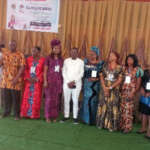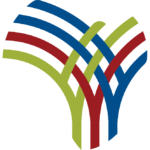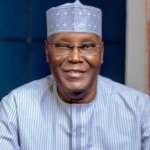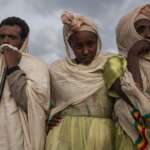A Closer Look at Africa
Africa Flag
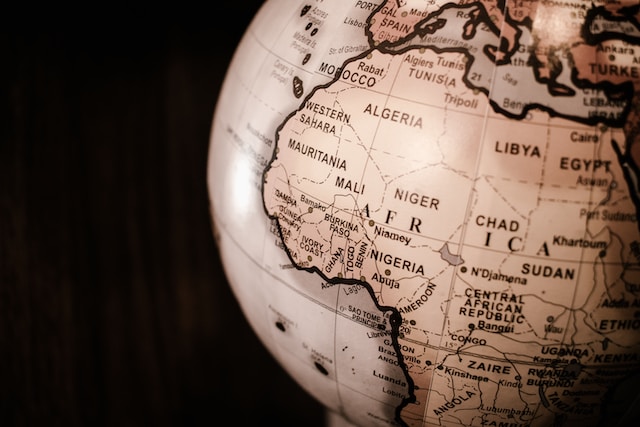
Africa Capital Name
- Algeria - Algiers
- Angola - Luanda
- Benin - Porto-Novo
- Botswana - Gaborone
- Burkina Faso - Ouagadougou
- Burundi - Gitega
- Cameroon - Yaoundé
- Cape Verde - Praia
- Central African Republic - Bangui
- Chad - N’Djamena
- Comoros - Moroni
- Democratic Republic of the Congo - Kinshasa
- Djibouti - Djibouti
- Egypt - Cairo
- Equatorial Guinea - Malabo
- Eritrea - Asmara
- Ethiopia - Addis Ababa
- Gabon - Libreville
- Gambia - Banjul
- Ghana - Accra
- Guinea - Conakry
- Guinea-Bissau - Bissau
- Ivory Coast - Yamoussoukro
- Kenya - Nairobi
- Lesotho - Maseru
- Liberia - Monrovia
- Libya - Tripoli
- Madagascar - Antananarivo
- Malawi - Lilongwe
- Mali - Bamako
- Mauritania - Nouakchott
- Mauritius - Port Louis
- Morocco - Rabat
- Mozambique - Maputo
- Namibia - Windhoek
- Niger - Niamey
- Nigeria - Abuja
- Rwanda - Kigali
- Sao Tome and Principe - Sao Tome
- Senegal - Dakar
- Seychelles - Victoria
- Sierra Leone - Freetown
- Somalia - Mogadishu
- South Africa - Pretoria
- South Sudan - Juba
- Sudan - Khartoum
- Swaziland - Mbabane
- Tanzania - Dodoma
- Togo - Lomé
- Tunisia - Tunis
- Uganda - Kampala
- Western Sahara - Laayoune
- Zambia - Lusaka
- Zimbabwe - Harare
Africa Neighbours
 Algeria
Algeria Angola
Angola Benin
Benin Botswana
Botswana Burkina Faso
Burkina Faso Burundi
Burundi Cape Verde
Cape Verde Central African Republic
Central African Republic Chad
Chad Comoros
Comoros Cote D'Ivoire
Cote D'Ivoire Djibouti
Djibouti Egypt
Egypt Equatorial Guinea
Equatorial Guinea Eritrea
Eritrea Ethiopia
Ethiopia Gabon
Gabon Gambia
Gambia Ghana
Ghana Guinea
Guinea Guinea-Bissau
Guinea-Bissau Kenya
Kenya Lesotho
Lesotho Liberia
Liberia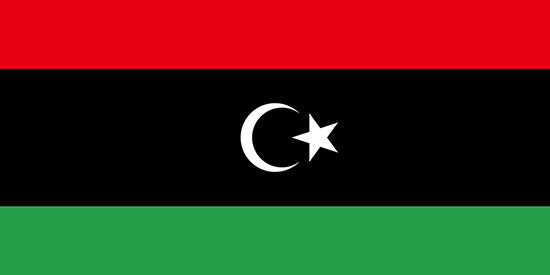 Libya
Libya Madagascar
Madagascar Malawi
Malawi Mali
Mali Mauritania
Mauritania Mauritius
Mauritius Morocco
Morocco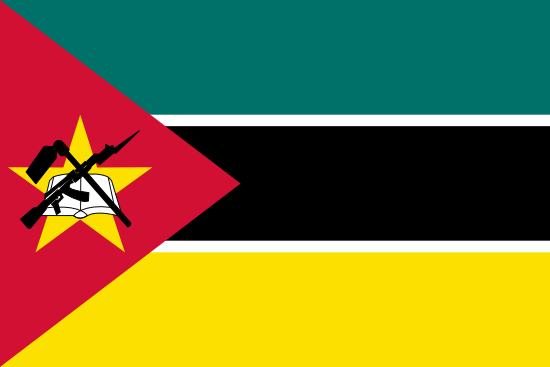 Mozambique
Mozambique Namibia
Namibia Niger
Niger Nigeria
Nigeria Republic of the Congo
Republic of the Congo Rwanda
Rwanda Sao Tome and Principe
Sao Tome and Principe Senegal
Senegal Seychelles
Seychelles Sierra Leone
Sierra Leone Somalia
Somalia South Africa
South Africa Sudan
Sudan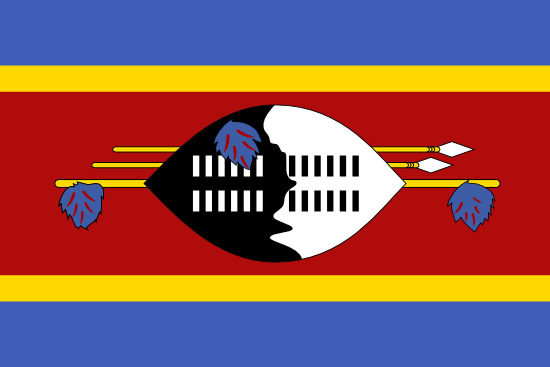 Swaziland
Swaziland Tanzania
Tanzania Democratic Republic of the Congo
Democratic Republic of the Congo Togo
Togo Tunisia
Tunisia Uganda
Uganda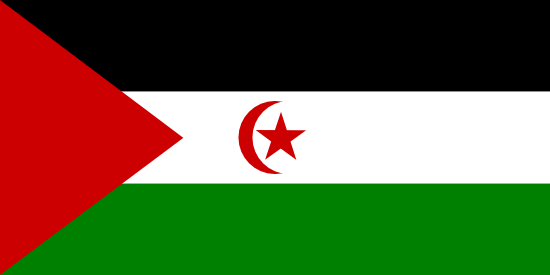 Western Sahara
Western Sahara Zambia
Zambia Zimbabwe
Zimbabwe
Exploring Africa
Origin of Africa
Africa is the second largest continent in the world, covering an estimated 30.37 million square kilometers of land. It has 54 countries and countless cultures. Africa serves as the birthplace of humankind, as many anthropologists and other scientists believe that Homo sapiens Sapiens, the modern human, evolved in what is now Ethiopia around 200,000 years ago. It is also home to the oldest and largest desert in the world, the Sahara desert located in North Africa.Culture
Africa is home to a diverse variety of cultures, rich in tradition and art. The continent has an abundance of traditional art forms such as dance, music, carving, painting, and handmade crafts. Pottery is especially popular in places like southern Africa, where it is used both for functional and decorative purposes. Art plays an integral role in African culture and is represented by many of its iconic symbols, such as the Sahara sandal and the Zulu headdress. Music is also a major part of African culture, with genres ranging from reggae and rock to traditional gospel and tribal music.Sport
Sport is an important part of African culture, with some of the most popular sports including soccer, basketball, cricket, and rugby. Soccer is the most popular sport across the continent, with popular teams such as Morocco’s Raja Casablanca and South Africa’s Kaiser Chiefs. Basketball and cricket have also become more popular throughout the African continent, with the NBA's Basketball Africa League being established in 2020. Rugby has a particularly strong presence in southern Africa, with the South African national team being a powerhouse in the sport.Religion
Africa is home to many religions, with the majority of the population adhering to either Christianity or Islam. Christianity is the dominant religion in Sub-Saharan Africa, particularly in regions of Equatorial Africa and Southern Africa. Islam is the largest religion in North Africa, with 42% of the population adhering to the faith, while Christianity is the majority faith in the horn of Africa. Indigenous African religions and ancient Egyptian religion are also present on the continent, particularly in parts of West Africa.Languages
There are many languages spoken across Africa, with the most widespread being Arabic, English, French, Swahili, and Hausa. Arabic is the most widely spoken language on the continent, with almost two hundred million speakers across the region. English is the second most common language in Africa, with close to one hundred million speakers. French is the third most common language, with more than ninety million speakers across the continent. Swahili and Hausa are both also well-spoken languages across the continent.Education
Education is a necessity for development in both urban and rural regions of the continent. However, there remain disparities in the continent regarding educational access, quality, and availability. The amount of time spent in school and the number of qualified teachers remain challenges among developing countries in the region. Despite these challenges, some countries have achieved greatly in terms of educational development, and strides are being made in order to provide quality education to everyone.Demographics
Africa has a total population of 1.3 billion people, making it the second most populous continent in the world. It has a population density of 46 people per square kilometer, with the highest density being in the horn of Africa. The majority of the population lives in countries south of the Sahara desert, with the median age across the continent being 19.3 years. The life expectancy in Africa is also relatively low, with the average person living to the age of 62.8, although this has been increasing in recent years due to improved medical care and sanitation.Commerce
Africa’s economy is growing rapidly, with the continent now accounting for just over a tenth of the world’s total GDP. It has a wealth of natural resources, such as diamonds, gold, oil, and copper, which have contributed to the economic growth of countries in the continent. Agriculture also plays an important role in African commerce, with many of the continent’s countries relying heavily on agricultural exports. Tourism is also an important source of income for many African countries, with the continent’s diverse landscape, culture, and wildlife attracting millions of visitors every year.Weather
Africa is known for its tropical climate and extreme weather. The climate of the continent varies greatly depending on region, although hot and dry is common across the continent. The Sahara Desert has some of the hottest temperatures in the world, while the horn of Africa has temperatures that can reach as low as 0 degrees Celsius during winter. The continent also experiences some extreme weather events such as cyclones, floods, and droughts.Borders
Africa has a total land area of 30.3 million square kilometers, with the coastline of the continent stretching more than 24 thousand kilometres in length. It is bordered by the Mediterranean Sea to the north, the Indian Ocean to the east, and the Atlantic Ocean to the west. Africa also borders the Red Sea in northeastern part of the continent and is bordered by the Sahara Desert in much of the north and central part of the continent. Africa is separated from Europe by the Mediterranean Sea and Suez Canal.Africa Highest Point Name
The highest point in Africa is Mount Kilimanjaro in Tanzania, with a summit elevation of 5,895 m (19,341 ft) above sea level. It is the highest mountain in Africa and the highest freestanding mountain in the world.
Africa Capital Longitude
The capital of each African country varies, but here are some examples:
- Burkina Faso: Ouagadougou, 11.3678°N
- Kenya: Nairobi, 1.2921°S
- Ethiopia: Addis Ababa, 9.0241°N
- South Africa: Pretoria, 25.7364°S
- Nigeria: Abuja, 8.5480°N
- Egypt: Cairo, 30.0444°N
Africa Capital Latitude
- Algeria - Algiers - 36.7538° N
- Angola - Luanda - 8.8368° S
- Benin - Porto-Novo - 6.4927° N
- Botswana - Gaborone - 24.6555° S
- Burkina Faso - Ouagadougou - 12.3653° N
- Burundi - Bujumbura - 3.3731° S
- Cameroon - Yaoundé - 3.8612° N
- Cape Verde - Praia - 14.9245° N
- Central African Republic - Bangui - 4.3621° N
- Chad - N'Djamena - 12.1131° N
Africa Official Languages
Africa is a large and diverse continent. It is home to 54 countries and over 2,000 languages. Official languages vary widely from country to country. Some examples of official languages in Africa include
- English
- French
- Hausa
- Swahili
- Arabic
- Portuguese
- Spanish
- Amharic
- Yoruba
- Igbo
- Berber
Africa Ethnic Groups
South Africa is a diverse country, home to many different ethnic groups. The biggest ethnic groups in the country are the black South Africans, who make up around 80% of the population. White South Africans make up 8.9%, and the Coloured, Indian/Asian, and other minority populations make up the remaining 11.1%. In addition to these groups, other ethnicities recognized in the population include the Khoisan, which includes the !Kung and Khwe people, and the San or Basarwa people, who are nomadic hunter-gatherers. Other African nations are also represented in South Africa, including people from Zimbabwe, Namibia, Mozambique, and Malawi. People from India, Portuguese-speaking nations, China, and Germany, among other places, are also represented in South Africa’s population.
Africa Religions
Africa is home to a wide variety of faiths and religious traditions. The most widely practiced religions are Christianity and Islam, followed by traditional African Beliefs and then Hinduism and Buddhism. In Ethiopia, the most dominant religion is Christianity, with over 60 percent of the population belonging to the Ethiopian Orthodox Church. Other Christian denominations in Ethiopia include Catholicism, Protestantism, and Lutheranism. Islam is also widely practiced in Ethiopia, accounting for around 33 percent of the population. In Nigeria, the majority of the population is Christian (50 percent) with another 48 percent identifying as Muslim. There are also sizeable minorities of practitioners of traditional African religions and Hinduism. In Egypt, Islam is the main religion, accounting for around 90 percent of the population. The remaining 10 percent of the population is predominantly Coptic Christian, with very small numbers of Hindu and Buddhist practitioners. In other sub-Saharan African countries, traditional African religions are still widely practiced. In Kenya, some 40 percent of people identify as Christians, and about 45 percent identify as practitioners of traditional African Religions. Similarly, in South Africa, the majority of the population identify as Christian (80 percent), and traditional African beliefs continue to persist among a sizeable minority (15 percent).
Africa Total Area
Africa is the world's second-largest continent, and covers an area of 30,370,000 square kilometers (11,730,000 square miles).
Africa Land Area
Africa is a huge continent with 54 countries and a total land area of over 30 million square kilometers (11.7 million square miles). The amount of land area per African country varies greatly, from just over 4,000 square kilometers (1,550 square miles) for the Seychelles to over 6.7 million square kilometers (2.59 million square miles) for Algeria. The following is a list of African countries and their respective land areas (in square kilometers):
- Algeria: 2,381,741
- Angola: 1,246,700
- Benin: 112,622
- Botswana: 600,370
- Burkina Faso: 274,000
- Burundi: 27,830
- Cabo Verde: 4,033
- Cameroon: 475,440
- Central African Republic: 622,984
- Chad: 1,284,000
- Comoros: 2,235
- Congo: 342,000
- Cote d'Ivoire: 322,463
- Democratic Republic of the Congo: 2,344,858
- Djibouti: 23,200
- Egypt: 1,001,450
- Equatorial Guinea: 28,051
- Eritrea: 117,600
- Ethiopia: 1,104,300
- Gabon: 267,667
- Gambia: 11,295
- Ghana: 238,537
- Guinea: 245,857
- Guinea-Bissau: 36,125
- Kenya: 580,367
- Lesotho: 30,355
- Liberia: 111,369
- Libya: 1,759,540
- Madagascar: 587,041
- Malawi: 118,480
- Mali: 1,241,238
- Mauritania: 1,030,700
- Mauritius: 2,040
- Morocco: 446,550
- Mozambique: 801,590
- Namibia: 825,418
- Niger: 1,267,000
- Nigeria: 923,768
- Rwanda: 26,338
- Sao Tome and Principe: 964
- Senegal: 196,190
- Seychelles: 459
- Sierra Leone: 71,740
- Somalia: 637,657
- South Africa: 1,219,090
- South Sudan: 644,329
- Sudan: 1,861,484
- Tanzania: 945,087
- Togo: 56,785
- Tunisia: 163,610
- Uganda: 241,038
- Zambia: 752,614
- Zimbabwe: 390,757
Africa Water Area
According to the World Bank, the total water area of Africa is about 18.58 million square kilometres, or approximately 8.93% of the total global water area. This includes the major lakes, rivers, reservoirs and wetlands across the continent.
Africa Total Population
The total population of all countries in Africa is approximately 1.3 billion.
Africa Currency Name
The currencies of African countries vary. Some of the common ones are the Egyptian pound, South African rand, Kenyan shilling, Moroccan dirham, and Nigerian naira.
Africa Currency Code
Examples include:
- Egypt - EGP
- South Africa - ZAR
- Nigeria - NGN
- Kenya - KES
- Ethiopia - ETB
- Morocco - MAD
Africa Currency Symbol
The currency symbols of African countries vary depending on the country, but some of the most common symbols include:
- Angola - AOA
- Botswana - BWP
- Cameroon - XAF
- Egypt - EGP
- Ghana - GHS
- Kenya - KES
- Morocco - MAD
- Nigeria - NGN
- South Africa - ZAR
- Tanzania - TZS
- Uganda - UGX
- Zambia - ZMW
Africa Calling Code
The continent of Africa consists of 54 countries, and each of these countries has its own country calling code. To find out the country calling code for a specific African country, refer to a trusted online source, such as the International Telecommunications Union or WorldATlas
How to Say "Africa" In Different Languages?
- Berber
- ⴰⴼⵔⵉⵇⵢⴰ (tzm-MA)
- Kimbundu
- Africa (kmb-AO)
- Kongo
- Africa (kg-CG)
- Arabic
- أفريقيا (ar-EG)
- Amharic
- አፍሪካ (am-ET)
- French
- Afrique (fr-FR)
- Twi
- Afrika (tw-GH)
- Swahili
- Afrika (sw-KE)
- Libyan Arabic
- الأفريقيا (ar-LY)
- Moroccan Arabic
- الأفريقيا (ar-MA)
- Yoruba
- Afirika (yo-NG)
- Portuguese
- África (pt-PT)
- Romanian
- Africa (ro-RO)
- Wolof
- Afiika (wo-SN)
- Somali
- Africa (so-SO)
- Zulu
- iAfrika (zu-ZA)
- Spanish
- África (es-ES)
- Sudanese Arabic
- الأفريقيا (ar-SD)
- Ewe
- Afrika (ee-TG)
- Tunisian Arabic
- الأفريقيا (ar-TN)
Africa Popular Holidays
- Eid al Adha
- 20-23 August (23 August)
- CUF Founding Weekend
- 23-24 January (23 January)
- Eid al Fitr
- 12-14 August (14 August)
- New Year's Day
- 1 January
- Liberation Day
- 17 January
- Youth Day
- 18 January
- Union Day
- 7 February
- Independence Day
- 26 April
- Labour Day
- 1 May
- Africa Day
- 25 May
- CUF Founding Day
- 5 June
- Sauti Ya Taifa/National Anthem Day
- 27 June
- Martyr's Day
- 7 July
- Farmer's Day
- 14 July
- Revolution Day
- 7 October
- National Flag Day
- 9 October
- Zanzibar Revolution Day
- 12 October
- Eid al Mawlid
- 30 November
- Mother's Day
- 8 December
- National Day
- 23 December
- Christmas
- 25 December
- Boxing Day
- 26 December



